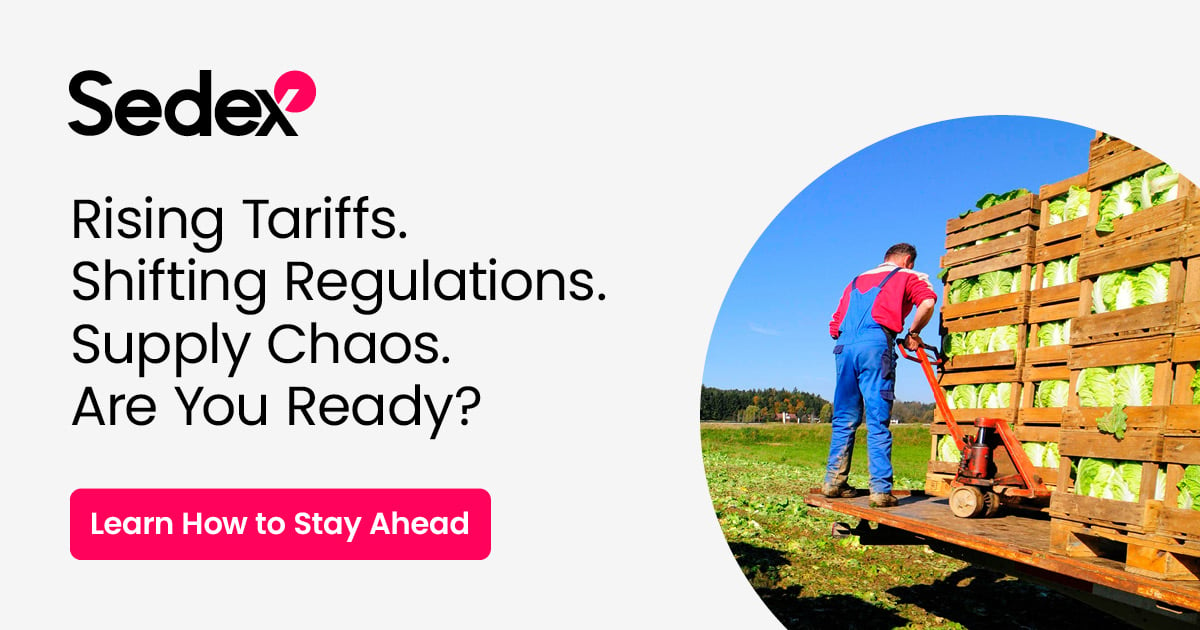B Corp Certification: What it is and why your supply chain matters
If you work in sustainability, procurement, or supply chain management, you’ve likely heard more conversations about B Corp certification—from leadership, customers, or investors. Understanding what B Corp certification involves, how the 2025 standards have changed, and how your existing supply chain data and due diligence fit into the process can help you determine whether this certification is right for your organisation.
This guide breaks down what B Corp certification means, who is eligible, what changed in 2025, and how supply chain professionals can prepare.
What is B Corp certification?
B Corp certification is awarded by B Lab, a global non-profit organisation that assesses companies against rigorous standards for social and environmental performance. Unlike standard business certifications that focus purely on quality or safety, B Corp assesses whether a company genuinely balances profit and purpose.
B Corp certification confirms three key things:
1. Your company meets high standards for social and environmental performance
2. Operates with real transparency
3. Is accountable to all stakeholders – not just shareholders.
This matters because it’s not self-assessed. B Lab conducts thorough reviews and background checks.
What changed in 2025?
B Corp certification introduced a major update in 2025. Previously, companies earned certification through a points-based scoring model. Companies could score well in some areas and compensate with lower scores elsewhere. The new framework is stricter and more comprehensive.
Now, companies must meet mandatory minimum requirements in every critical area. You can’t just have a strong environmental programme and overlook fair labour practices, for example. Every impact topic requires baseline compliance.
This shift reflects growing stakeholder expectations. Customers, employees and investors want companies that excel across the board, not just in one or two areas.
Who can get B Corp certified?
To be eligible:
- Your organisation must be for-profit
- It must be legally incorporated
- You must have at least 12 months of operations
- Less than 1% of revenue can come from excluded industries (e.g., fossil fuels, gambling, pornography, tobacco, weapons, detention facilities)
These restrictions ensure B Corp certification applies to companies whose business models align with positive social and environmental impact.
The foundation requirements: Your starting point
Before assessing specific impact topics, B Lab checks:
1. Legal entity and structure – Verification that your company is legitimate and eligible.
2. Risk profile – Screening for involvement in excluded industries and reviewing your ownership, governance, and revenue sources.
3. Stakeholder governance – Companies must adopt legal language committing to accountability beyond shareholders. For many organisations, this requires updating governing documents and may involve board approval.
Seven impact topics: Where your due diligence fits in
Once you’ve satisfied the foundation requirements, B Lab assesses your performance across seven mandatory impact areas:
1. Purpose and stakeholder governance. How does your company define its mission? How does it make decisions that affect employees, customers, suppliers, and communities? This is about embedding purpose into your governance structure.
2. Fair work. Are you paying fair wages? Offering benefits? Respecting workers’ rights? This is where your labour data and working conditions audits become essential evidence.
3. Justice, equity, diversity, and inclusion (JEDI). Does your company actively work to address systemic inequalities? Are your leadership and workforce representative? Can you demonstrate progress?
4. Human rights. Are you identifying and managing human rights risks in your operations and supply chain? Do you have grievance mechanisms? This directly relates to supply chain due diligence work.
5. Climate action. Do you have a credible plan to reduce your greenhouse gas emissions? Can you measure your climate impact?
6. Environmental stewardship and circularity. Are you minimising waste? Using resources responsibly? Designing for circular economy principles?
7. Government affairs and collective action. Are you engaging responsibly in policy discussions? Contributing to industry standards and collective solutions?
For supply chain professionals, the fair work, human rights, and climate action topics are particularly relevant. The data you collect through audits, supplier assessments, and supply chain transparency work directly supports these areas.
What’s different if you’re a larger company?
If your company has more than $350 million in annual revenue or more than 1,000 employees, B Lab expects more robust evidence and more comprehensive programmes.
Larger companies must demonstrate detailed climate plans, conduct thorough supply chain due diligence across their entire network, and report Scope 3 emissions data (the emissions generated by your suppliers and customers). This makes sense: larger organisations have greater impact and greater responsibility.
If you’re in a large company, your supply chain transparency work becomes even more critical to B Corp certification success.
B Corp certification is not a one-time achievement
Many companies assume certification is a destination: earn it and you’re done. That’s not how B Corp works.
Certification requires you to demonstrate continuous improvement. Your company must re-certify every three years. At years 0, 3, and 5, B Lab reviews your progress against new and evolving standards. This means you can’t simply meet the baseline and stay static. You need to be genuinely committed to getting better.
For supply chain professionals, this means the processes you build now like: your audit schedules, your data collection systems and your due diligence frameworks, need to be sustainable and evolving. They’re not temporary projects for certification; they’re part of how your company operates.
The certification process: Six key steps
Understanding the B Corp certification journey helps you assess whether it’s realistic for your organisation:
Step 1: Eligibility check. Confirm that your company meets the foundational requirements and passes the risk profile assessment. This is relatively quick but essential.
Step 2: Legal review. Update your governance documents to formalise your commitment to stakeholders. This may require board approval and legal input.
Step 3: Complete impact assessment. Demonstrate compliance across all seven impact topics. This is the most detailed phase, requiring evidence from your operations, supply chain, and sustainability programmes.
Step 4: Verification and transparency. B Lab conducts background checks and may conduct site visits. You’ll be required to publish your commitments and share relevant disclosures publicly.
Step 5: Continuous improvement. Once certified, you implement your ongoing improvement roadmap. The work doesn’t stop.
Step 6: Re-certification. Every three years, you demonstrate advancement against current standards.
Why pursue B Corp certification?
The benefits extend across your business:
- Enhanced credibility and brand differentiation. Customers and investors increasingly recognise B Corp as a credible, verified standard. In a crowded market, it sets you apart.
- Improved employee engagement. People want to work for companies with genuine purpose. B Corp certification attracts and retains talent.
- Stronger stakeholder relationships. Formalising your commitment to stakeholders—not just shareholders—builds trust with employees, suppliers, and communities.
- Access to community and resources. You become part of the B Corp network, gaining access to peer learning, benchmarking data, and collective action opportunities.
- Market growth. Verified sustainable practices open doors with conscious consumers and responsible investors.
What this means for supply chain professionals
If you’re reading this as a supply chain, human rights, or sustainability professional, B Corp certification is increasingly relevant to your work. Your company may be considering it. Or your customers or investors may be expecting it.
The good news is that much of the work is already familiar. The data you collect through supplier audits, labour assessments, and supply chain transparency programmes directly supports B Corp certification. You don’t need to reinvent your processes; you need to ensure they’re documented, verified, and aligned with B Lab’s requirements.
This is where tools like Sedex and SMETA, which help you gather, organise, and verify supply chain and social data, become valuable. The transparency and evidence you’ve already been building can be leveraged for certification.
Looking ahead
B Corp certification is becoming a more serious expectation for mission-driven companies. The 2025 standards update reflects this shift: the certification is becoming more stringent, not less.
For supply chain and human rights professionals, this means the work you do in gathering data, auditing suppliers, and managing due diligence is increasingly central to your company’s ability to demonstrate genuine impact.
Understanding what B Corp certification is—and why it matters to your stakeholders—helps you position your supply chain work not as a compliance obligation, but as a strategic capability that supports your company’s credibility and growth.
For a deeper dive into using Sedex on your B Corp certification path, read our extended post here.




